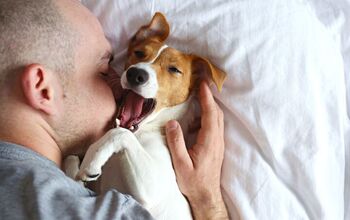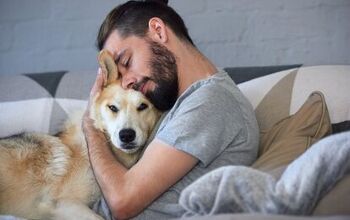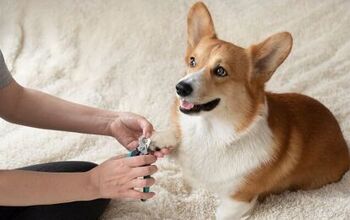Study: Dogs Know If You’re Acting Like A Jerk, So Don’t!

When looking at the basis of morality in humans, research shows that typically by the age of one, human babies have already started noticing how others behave and make value judgments based on the actions they witness. This leads many to believe that children have an intrinsic basis of morality that comes before anyone actually has the opportunity to ‘teach’ them how to respond to the actions of others.
Related: Study Shows Dogs Prefer Owners Over Food
Lead researcher and comparative psychologist James Anderson initially tested whether capuchin monkeys showed preferences for people who appeared helpful to the monkeys, compared to those the monkeys observed as either passive or not helpful at all. To do this, the monkeys watched an actor ‘struggle’ to open a container, and then watched as the actor sought assistance from a second actor, who either helped or did not. Then, both actors offered the monkeys a treat, and researchers watched to see from whom the monkeys took treats.
What they observed was fascinating. The monkeys didn’t have an issue taking a treat from either the actor ‘struggling’ to open the container or the actor who ‘helped’ the struggling actor, but when the choice was between the struggling actor or the actor who simply refused to help, the monkeys did not seem to want to take the treat from the non-helpful actor as often as they did from the struggling actor.
Similarly, dogs behaved the same way when watching their owners. Researchers wanted to specifically look at how dogs responded when their owner seemed need help and either received that help or did not. Each owner ‘attempted’ to open a container as their dog watched, and then gave it to one of two actors–one who either helped or refused to help the owner and one who remained passive in the whole scenario. Then, both actors offered the dog a treat and researchers watched who the dog took the treat from.
Related: Heads Up, Dog Trainers: Why You Should Treat Humans Likes Dogs
The dogs didn’t seem to have any preference between the helpful actor or the passive actor, but were much more likely to take the treat from the passive actor when the other actor refused to help its owner. Anderson believes the findings show that dogs (and monkeys) are able to make social evaluations of people similarly to the way humans do–and even have an emotional reaction to someone who has behaving in an antisocial way. He believes that as dogs have evolved, they’ve become sensitive to human behaviors–not just the way we act with dogs, but how we act with each other as well.
So the next time you want to give someone a piece of your mind? Watch it! Fido is watching…and judging!

More by Lori Ennis






















